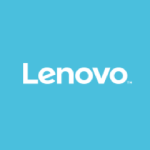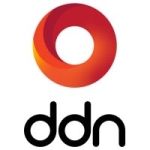What is our primary use case?
Our company used this solution primarily for databases. The customer who currently uses it mainly uses it for the data store. He uses it as a single silo with the storage it offers, so he implements the project and uses what he needs to. The solution is not that flexible that you can change the workload so it depends on what you designed before. So you have to compute for your load or for your use before you do the setup.
How has it helped my organization?
The NetApp EF-Series gave our organization easy access to our databases. What's great about this solution is that it speeds up our data store because it is a cheap solution for flash performances.
What is most valuable?
What I really like about this solution is that it is easy to use and the implementation was straightforward. The availability is another feature that stands out for me, as it offers a variety of ways to connect to our customers.
What needs improvement?
One thing that may need to improve is the software monitoring as it is based on a work station that is serviced to give support to the management. The manager may not be as fast on board the controller, so it needs something else to make it easier to manage. Managing the storage is, therefore, the only single point of failure.
For how long have I used the solution?
We have been using NetApp EF-Series All Flash Arrays for ten years, but currently only one of our customers are still using it. He is using the EF560 version of this solution.
What do I think about the stability of the solution?
We've used the NetApp EF-Series for ten years and it has been extremely stable.
What do I think about the scalability of the solution?
I think the scalability of the solution is really good. We can scale with the space, but not with the computation capabilities or with the controllers. I believe the reason for this is that it is an old style storage system. There are some new products on the market that are more agile and more scalable.
I am not sure how many users our customer has, but I think it is about 100 users. The scalability would depend on the kind of VM system they're working on.
How are customer service and technical support?
The technical support is very good. The solution doesn't require that much maintenance because it's quite easy and very robust as a storage system. When we did call in the help of support, they responded quickly and offered the correct solution.
Which solution did I use previously and why did I switch?
Our client used another solution before but they found that the NetApp EF-Series is much faster when it comes to performance. And they saved a lot of money with the cost of the fast drives.
How was the initial setup?
The initial setup was straightforward and having fewer features to install makes it really simple. You only need a strong internet connection and once you've applied it onto the network, it is easy to find the managing software and to set everything up.
The deployment took no longer than 50 minutes. Once installed, you only need to supply the management IP address and after that, depending on the number of the LANs to be implemented, everything is complete.
The biggest part of the job is first to configure the IP address for the management. The maintenance is really simple and you can upgrade without interrupting services. When implementing, the main job is to do some configuration, implement the LANs, the zoning and the masking. After that, it will stay as it is for a long time. I believe firmware updates can be handled by one person alone.
What about the implementation team?
We never use an integrator - we do our installations ourselves. And so far we haven't experienced any trouble.
What's my experience with pricing, setup cost, and licensing?
Our license is fully integrated now, so we don't have any additional payments. We do use volume cryptography, but I believe it is free.
What other advice do I have?
I will rate this solution a nine out of ten because it has limited storage. Before you take on a project, you must know how much storage you need, but once you focus on the system, it will give you great performance, reliability and ease of use.
Disclosure: My company has a business relationship with this vendor other than being a customer: Reseller.









